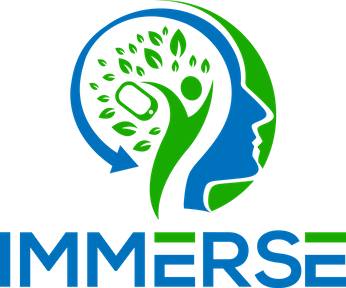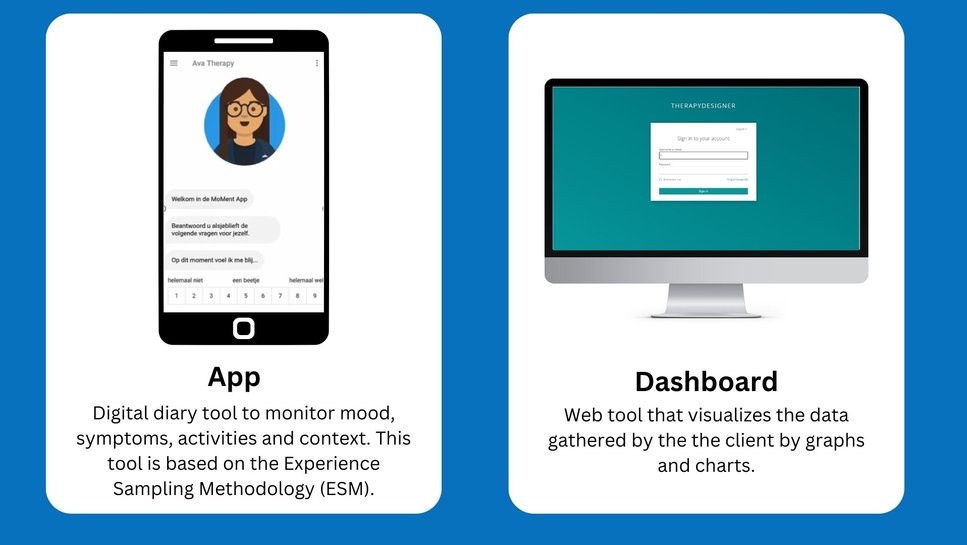Mission
To enhance person-centered mental healthcare.
Vision
To develop a monitoring technology that can provide practitioners with valuable insight into the daily lives of their clients and assist clients in gaining greater insight into/in obtaining an increased understanding of their own mental health.
The DMMH-tool
We are developing a ‘Digital Mobile Mental Health (DMMH)’ tool to support clients and practitioners in clinical practice. Our DMMH tool is a secure and innovative software solution for using the ‘Experience Sampling Method (ESM)’ in mental healthcare.
The ESM is a structured self-report diary technique for assessing mood, symptoms, context and appraisals as they occur during daily life. During the course of several days, individuals are required to complete a momentary ESM questionnaire several times a day. Besides that, the ESM software consists of a dashboard for practitioners and a smartphone app for clients. The dashboard is accessed through a website, whereas the app is simply downloaded from the app store. In addition, the dashboard provides practitioners with a template for creating an ESM questionnaire tailored to their clients' needs. Once created, a QR code is generated which clients can scan with the app on their smartphones. After that, the client simply fills out the tailored ESM questionnaire several times a day for a defined period of time. All the information collected this way, is subsequently visualized on the dashboard of the practitioner, so that the practitioners and their clients can use this information in therapy.
How it can help
- ESM may strengthen client engagement and empowerment, as it identifies the client as the expert of his or her experience which makes them active partners in their own treatment.
- Self-monitoring through ESM may improve client self-management and recovery as it provides the client with a tool to improve their understanding of their own mental health problems, as well as to manage these problems more effectively.
- ESM data may provide goal direction in clinical assessment and management of care, as the detailed, granular and personal information on patterns of associations between symptoms, key problem areas and their contexts will help clinicians to come to clear, actionable and personalized therapy goals as well as improve overall management of care.
- ESM may enhance shared decision making as it provides the highly needed relevant and qualitative day to day information on key problem areas and relevant contextual factors, that is needed for making treatment decisions and evaluating progress of treatment together.


